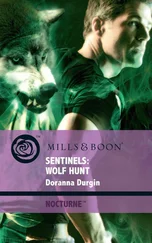


Praise for the Officer’s Prey
'...vivid portrayal of the Grande Armée ... worth reading’ Literary
Review
'...with vivid scenes of battle and military life ... Cabasson’s atmospheric novel makes a splendid war epic ...’ Sunday Telegraph ‘Cabasson skilfully weaves an intriguing mystery into a rich historical background.’ Mail on Sunday
WOLF HUNT
ARMAND CABASSON
Translated from the French by Isabel Reid

CHAPTER 1
IT had happened five years ago, in 1804, but to Lukas Relmyer those five years seemed no more than a minute. He stopped on the last step, momentarily paralysed, and had to force himself to go forward into the cellar. From the outside, the ruins of the farm had not changed, but in here the ceiling had deteriorated, collapsing in places. Relmyer wandered into the middle, avoiding the rays of sunshine as if he feared they might scorch him. He touched a large prominent stone. Like last time. Suddenly his hand seemed to him changed, more fragile, hesitating between childhood and maturity. An adolescent’s hand. Lukas Relmyer had difficulty breathing. He thought he heard a scraping behind him. He turned round sharply, although he knew that the noise had occurred five years ago and was long since silenced. He could almost see Franz, pressed against the cellar wall, on tiptoes, trying to loosen a stone. Franz was smiling, but he was only a memory, a lie. Or a ghost perhaps.
‘It almost moved, Lukas!’
How many times had Franz said that? Sweat glued his hair to his forehead. He had been at it for hours, but still he smiled. Truly, he had never lost heart. Of the two of them, he had been the more determined. But Franz had collapsed. His body had struck the roughly paved ground. Relmyer had hurried over to help him. He had taken Franz in his arms, shaking him and shouting his name. By that time neither of them had eaten or drunk anything for two days. The man who had locked them up there had not returned. They had wondered what on earth he wanted. To abduct them? To punish them as a joke? To let them die of starvation? Or worse? Relmyer had lain Franz down and taken his place, using a cut stone to scratch away at the mortar. His palm bled, and his fingers, from rubbing against the wall. They were trying to widen a crack that allowed a sliver of light through, proof that the ceiling of the cellar was just above ground level.
‘Is everything all right, Lieutenant?’ asked a voice outside.
Lukas Relmyer was disorientated by this sudden reminder of the present, but immediately he forgot the outside world again. Around the ruins three French hussars were on the lookout, their muskets at the ready. They anxiously scanned the surrounding forest. The horses whinnied and snorted - did they sense something? It would not be easy to see danger coming in the impenetrable tangle of trunks, branches, thickets and shadows.
The trooper who had spoken went up to his officer to say quietly to him, ‘If we stay, the Austrians will discover us and cut our throats. We could just leave the lieutenant here. After all, since he’s so gifted with his sabre, he doesn’t need us to protect him: he will be able to follow us back to Vienna on his own.’
‘Go and tell him that yourself, Pegrichut...’
But the soldier had not dared. His lieutenant had seemed so agitated when they had arrived ... It was best to keep your distance from men like that. Some duellists made free with their blades and would run you through for a minor transgression.
Relmyer came to stand by the opening, opposite the steps. The sun fell across his face. He had remembered the opening as being
very high. But not any longer, simply because he had grown. It seemed so narrow! He would have liked to go out through it, but his adult body would not fit. He looked at the spot where Franz had lain. They had succeeded in dislodging the damned stone. As it fell heavily, their spirits had lightened. The sky had been revealed. Four neighbouring stones had rapidly followed the first. After that it had been so much easier. Relmyer had pulled himself up and edged forward, the sides of the hole scraping his ribs. Once outside he had begun to laugh, to cry and to thank the Lord. A bursting forth of emotions. But fear had rapidly taken the upper hand again. The man who had imprisoned them could return at any moment. And Franz would never be able to join him up here. Emptied of all energy, he had continued to lie on the ground. He was unable to stand up any more, so how could he find the strength needed to haul himself up here? Relmyer had understood that he would not succeed if he tried to pull his companion out. The deprivations and the exertion had weakened him to the point where he was not even sure of being able to muster the strength to get out again himself if he went back down into the cellar. So Franz had stayed there, stretched out, exhausted, while Relmyer extended his arm to him from outside. The memory was so vivid that today Relmyer almost put out his hand towards the wall, even though his eyes showed him that no one lay against it. After all, memories can be as vivid as what you can see.
He had left Franz, promising him that he would come back with help. But when he had kept his word, some hours later, his friend was no longer there. Franz’s body had been discovered the next day, in another part of the forest. Today Relmyer had come back again. He had not found Franz lying there, of course, even if he secretly hoped for that absurd miracle. Past and present, adolescence and adulthood, past dangers and threats to come: all were muddled together in the melting pot of that dilapidated cellar. Lukas Relmyer knelt down opposite the wall and mouthed, ‘I’m going to find whoever did this to us, Franz. I promise you that. I promise for both of us.’
Although the words were silent, his determination was very real.
Relmyer stood up. Just before leaving he took out of his pocket a tin soldier he had bought in Vienna. He put the toy - an officer wearing a tricorne - in the centre of the hole through which he had escaped five years earlier. The figurine was small but, in the slanting rays of the sun, it cast a long shadow on the ground, brandishing a sword menacingly above its head.
CHAPTER 2
FOR the French soldiers, 21 May 1809 signified the end of the world, or so it seemed. That day a hundred thousand Austrians attacked Napoleon, who could only muster twenty-five thousand combatants in response. The rest of his army — some fifty thousand men - was stranded on the west bank of the Danube or on the Isle of Lobau, in the middle of the river, waiting to cross. The Austrians had destroyed all the bridges so the French pontoniers had built temporary ones - a large bridge, almost half a mile long, linking the west bank to the large Isle of Lobau, and a little one, just a hundred and ten yards long, linking the island to the east bank. The enemy kept sabotaging these structures, which then had to be repaired. Upriver, the Austrians would push flaming barges, rafts piled with stones, tree trunks, and even toppled windmills into the river. These were caught up by the current, which had been swelled by thawing snow, and would then damage the piers of the bridges or take out pieces of makeshift platform.
Читать дальше















